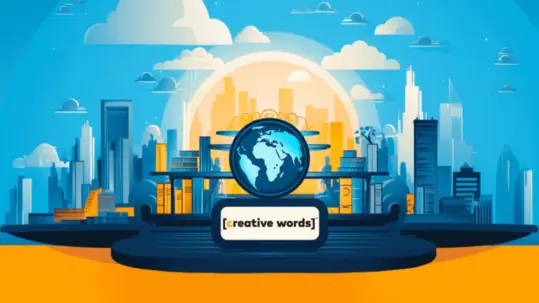
01 Jun Sustainable tourism: the importance of language in describing environments
 The growing popularity of sustainable tourism has significantly transformed the hospitality industry. But what exactly is sustainable tourism, and what specific aspects should be considered when translating descriptions of hotels, restaurants, resorts and more?
The growing popularity of sustainable tourism has significantly transformed the hospitality industry. But what exactly is sustainable tourism, and what specific aspects should be considered when translating descriptions of hotels, restaurants, resorts and more?
The extreme weather events of recent years have prompted many people to carefully evaluate their environmental impact: from food consumption to leisure activities, consumers seek greater sustainability. Indeed, it is important to acknowledge that our actions have significant impact on the environment. As things stand, it would take almost two Earths to sustain our current lifestyle.
One of the industries that has the highest emissions is tourism: during a holiday, our actions contribute significantly to environmental pollution and phenomena such as overtourism. As a result, more travelers are now embracing sustainable tourism to limit the environmental impact of their trips and protect the local environment. In Italy alone, 83% of the population is familiar with sustainable tourism, making it a relevant phenomenon.
The increase in interest in sustainable tourism has led to important changes in the hospitality industry itself. Hotels and accommodations now have to adapt their services and marketing strategies to promote themselves as sustainable destinations. This change also involves translators of tourism texts, who have to consider specific cultural and lexical aspects to convince consumers of the sustainability of a particular structure.
What is sustainable tourism?
Sustainable tourism pays particular attention to the economic, environmental, and social consequences of tourism activities. It aims to minimize negative impacts and maximize benefits for local communities, nature, and the economy. A sustainable holiday is planned and managed in a way that protects and preserves the natural environment, promotes the local culture, involves the host communities, creates an authentic and memorable experience, and respects local resources. Sustainable tourism activities often include support for small local businesses, use of renewable energy, responsible waste management, promotion of sustainable products, protection of biodiversity and ecosystems, and protection of cultural heritage. Sustainable tourism aims to create a model that offers not only economic but also social and environmental benefits in the long term, without compromising resources for future generations.
The fundamental role of sustainable tourism
Having understood in detail the definitions and objectives of this increasingly popular concept, it is important to dwell on the motivations behind sustainable tourism in order to be able to understand its relevance in today’s times and to understand why more and more travellers are saying they are environmentally aware.
So why is sustainable tourism important?
- Environmental protection: as is well known, tourism activities may damage the environment. Think, for example, of air, water and soil pollution, destruction of natural habitats and loss of biodiversity due to mass tourism. Eco-tourism therefore seeks to minimize these impacts and promote environmental conservation.
- Economic development: tourism can also be an important source of income and employment for local communities, and sustainable tourism promotes long-term economic development based on enhancing local resources and creating opportunities for small businesses and communities.
- Social responsibility: this type of tourism also seeks to actively involve local communities in decision-making and to promote local culture and heritage, as well as respect for human rights and the fight against exploitation and discrimination.
Prioritizing sustainability for hotels
Due to the popularity of sustainable tourism, more and more hotels and accommodation facilities are choosing to highlight environmental aspects as a marketing strategy.
Among the features that hotels frequently choose to highlight on OTAs (which we have already mentioned) and websites are:
- Energy efficiency, such as using renewable energy, installing LED lighting, managing room temperatures and using energy-efficient equipment.
- Waste management: a sustainable hotel will adopt policies to reduce and manage waste generated in a sustainable manner. This could include packaging reduction, reuse and recycling, and responsible management of organic waste.
- Use of sustainable materials: more nature-conscious hotels also try to use environmentally friendly materials for construction and furnishings. For example, they might choose to use wood from sustainably managed forests, recyclable materials, organic and/or biodegradable products, etc.
Click on the banner below and download our case study to discover how we helped La Sosta della Tartaruga enhance their international presence with quality translations!
Sustainable tourism and translation: focus on vocabulary
Careful attention to vocabulary is important when translating descriptions of sustainable hotels and restaurants to convey specific messages and concepts.
 Words such as ‘ecological’, ‘environmentally friendly’, ‘low-impact’, ‘sustainable’, ‘zero km’, ‘organic food’, ‘sustainable fishing‘, ‘zero waste’, ‘vegetarian’, and ‘vegan’ can help to emphasize a facility’s sustainable efforts.
Words such as ‘ecological’, ‘environmentally friendly’, ‘low-impact’, ‘sustainable’, ‘zero km’, ‘organic food’, ‘sustainable fishing‘, ‘zero waste’, ‘vegetarian’, and ‘vegan’ can help to emphasize a facility’s sustainable efforts.
Different cultures have different attitudes towards sustainability, and a translator must consider these differences to appeal to the target audience.
For companies that prioritize environmental sustainability, a sustainability section on the translated website can help customers make informed decisions.
The importance of sustainable restaurant descriptions
The descriptions of the dishes on offer should also be carefully drafted, for example by emphasizing an approach based on local and zero-kilometer products and by emphasizing the origin of the ingredients and the possible choice of nearby suppliers.
A translator could therefore use expressions such as ‘zero km’, ‘organic food’, ‘sustainable fishing’, ‘zero waste’, ‘vegetarian’, ‘vegan’ and many others.
For companies that pay more attention to the environment, sustainable tourism should be emphasised appropriately: one could, for example, create a sustainability section on the translated website, so that customers can decide for themselves whether or not the hotel reflects their expectations and values.
As we said at the beginning of the article, a translator should then clearly understand the different attitudes towards sustainability in different cultures.
Creative Words is an ISO-certified translation agency that has been providing translations for hotels, accommodations, resorts, and more for over five years. We understand the importance of translating for tourism with care and precision. Contact us without obligation if you need a translation for your facility. We will be happy to work with you to find the best solution to meet your needs.






